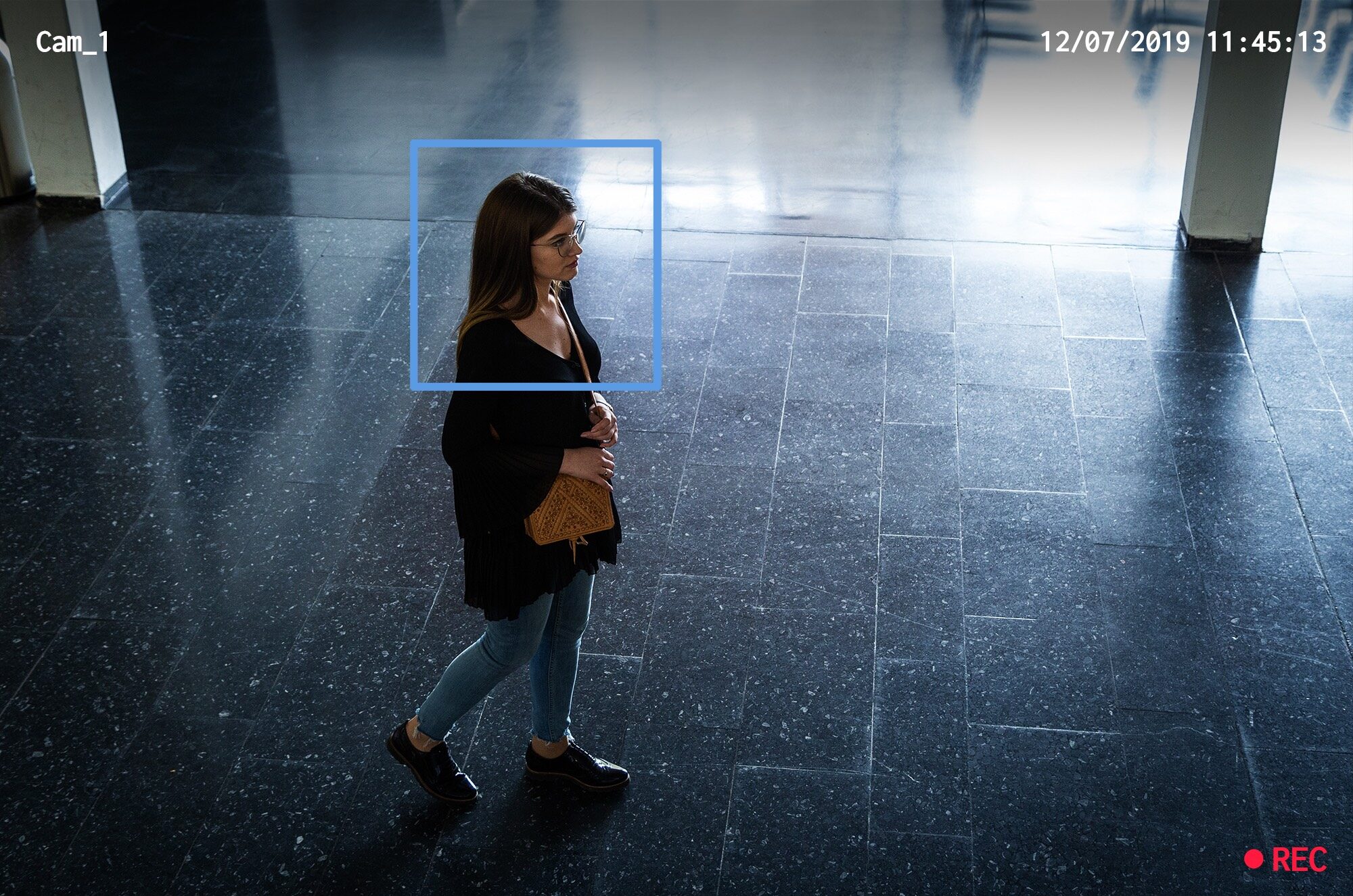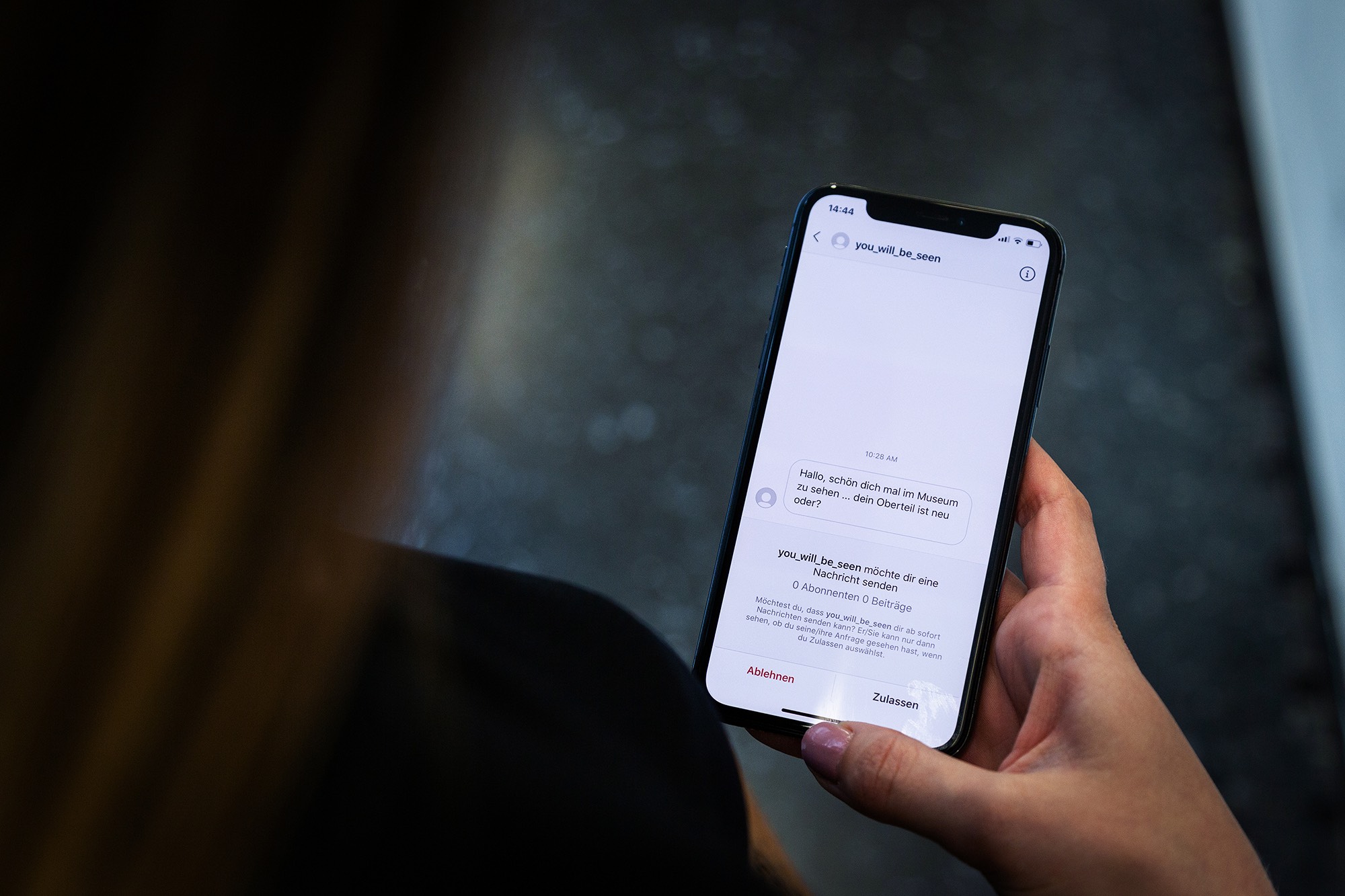you
ambient intelligence
Not knowing what is happening with your data is one of the dangerous parts of social media.
With You we wanted to create a interactive installation which shows the user, how their personal data is freely accessible in the internet and what can be done with it.
award
Dörthe-Wörner-Innovationspreis
year
2019
team
Elina Faber
Sarah Lerch
Jan Meininghaus
Domenika Tomasovic
role
concept
research
development
You ... yes you!
How do you handle your data? Do you sometimes wonder whether everyone needs to know that you are currently travelling in Frankfurt? Or is the evening sun that lights up your half-full cocktail glass really so beautiful that it has to be shared with the whole world?
Especially in social networks, people often no longer question which data is posted quite carelessly and freely accessible to third parties. And how this everyday data could be misused is often not an issue either.
You already knew that?
Maybe you thought about data abuse when you read about the Facebook data scandal around Cambridge Analytica. Or maybe you have experienced how difficult it can be to delete an account permanently and the unpleasant feeling that remains when you don't know whether the data has really been deleted.
But have you really thought about what you can find about yourself online? What could happen if this data gets into the wrong hands?

If we ask you ...
... which of your boards on Pinterest are public, you look thoughtfully and embarrassed because you realise that you are not aware of what you are revealing about yourself there. And if we tell you that through Facebook and Instagram we know who you've been with for the last three years and why you've most likely broken up, would you regret sharing the short trip with your friend so publicly? Every like, every comment, every friendship, every place you have been says something about you.
You is an Ambient Intelligent Space, ...
... that wants to make this experience possible for people like you. In a protected environment you will be surprised and should really be encouraged to think about it.
In contrast to apps, websites or friends and acquaintances, who are always trying to educate people, You shocks the users with their own data and thus remains in their memory.
Technology
You is an installation that makes use of location, databases and image recognition. These areas make it possible to find out as much as possible about a person within a few minutes. All that is needed is the username of a social network and if possible the first and last name. This data is elicited from the victim by social engineering under a pretext.
Little You tip:
Do not give your real name on social networks, but think of a cool nickname. Also, use different nicknames for different social networks, which will make you much harder to find.
Once the data has been collected, a personalised message is sent to the person's social media account. In addition, if necessary, a message can be displayed on screens in the vicinity, asking the person by name to look for a message in their social media. Alternatively, an image from the victim's social networks can be displayed, obscuring people.
The personalised messages in the chat and on the screens are intended to make the person feel like they are being watched and stalked.
The team observes the person and resolves the situation after a number of personalised messages.
After a short conversation, the participants are led to a screen on which all collected data is displayed in a personal profile. A red buzzer enables the person to irrevocably delete all locally collected data. The fact that this is not nearly as easy in real or digital life should be made clear to the person at the latest after this experience.
The Goal
The goal of You is the education of others! The aim is to give people the opportunity to develop an awareness of your data in a protected environment. You and the message behind it should be the topic of conversation. At work, in a private circle or alone, the experience should accompany people and enable them to handle their data more carefully and above all more consciously and to understand what consequences today's naive thinking can have. For what it means to experience first-hand that personal data is not secure is something different than just reading it or being told about it. What it really means, especially in our fully networked digital world, must be made tangible.


